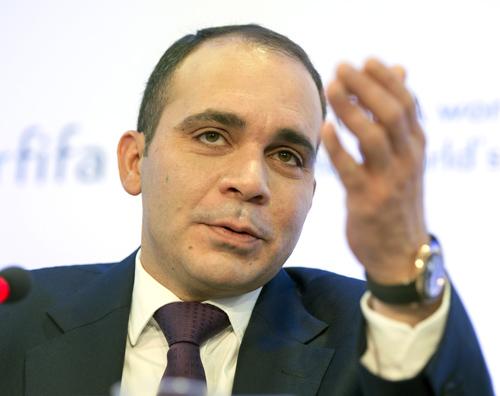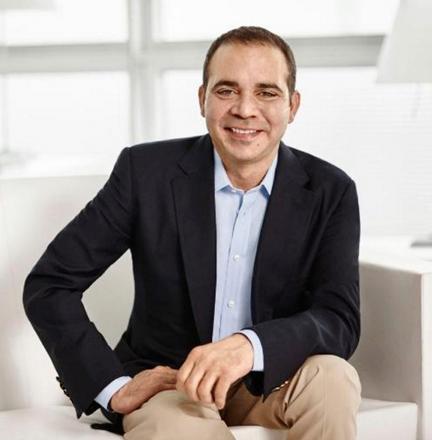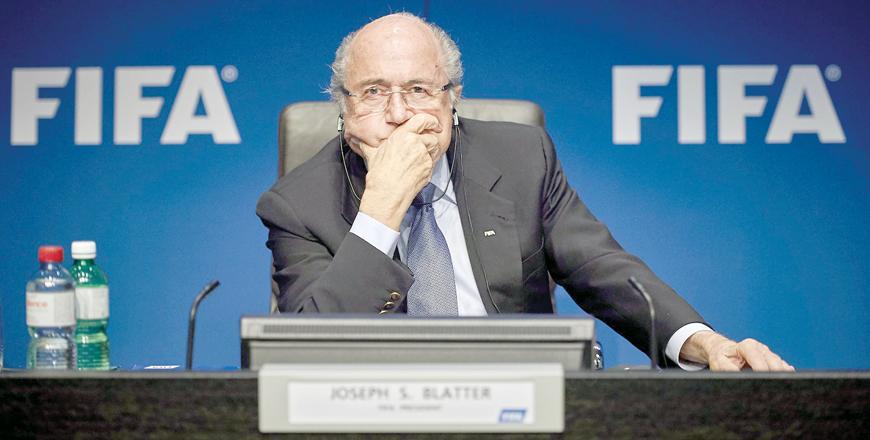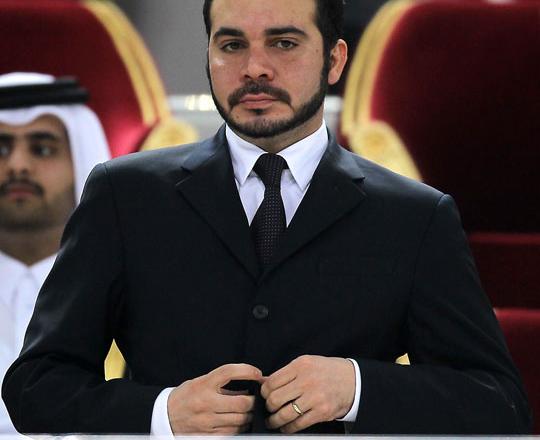You are here
Prince Ali queries Sheikh Salman’s role in Bahrain protests
By Agencies - Feb 11,2016 - Last updated at Feb 11,2016

HRH Prince Ali, FIFA presidential candidate, speaks during a news conference at the Swiss Press Club in Geneva, on Thursday (AP photo by Martial Trezzini)
FIFA presidential candidate HRH Prince Ali has questioned the role of election rival Sheikh Salman in not protecting Bahrain players who alleged abuses after pro-democracy protests in 2011, The Associated Press reported.
In the strongest statement yet on human rights ahead of the February 26 election, the prince dismissed the sheikh's consistent defence that national security issues are beyond the control of sports leaders.
"How are you then going to earn the respect of the entire world and players across the world, as well as FAs [football associations], if you couldn't even take care of your own?" Prince Ali told reporters on Thursday after a news conference near the United Nations office in Geneva.
Sheikh Salman has become front-runner in a FIFA campaign he began by strongly denying any part in helping to identify athletes who took part in Arab Spring protests five years ago.
Some Bahrain team players alleged they were tortured by government forces while detained for attending pro-democracy events.
Sheikh Salman was then president of the Bahrain Football Association, and has often said government issues are not the duty of sports leaders.
"Whatever is related to the political side and government side is not a concern of mine," the sheikh told the Associated Press in an interview in Paris on Tuesday. "We are people of football. They can ask me anything that is related to the game."
Prince Ali rejected that argument on Thursday, two weeks ahead of the five-man election.
"If a candidate was in a position before and simply says that, 'Those issues are to do with politics and therefore I cannot interfere?' No," the prince told a small group of reporters. "If you are not going to take care of your own players and if you are not going to stick up for them, that in itself is a problem."
In the earlier news conference, the prince replied to a question about human rights in Bahrain by saying the protection of players was a "simple, basic fact of the matter".
Still, Prince Ali acknowledged that a candidate's record on human rights was for the FIFA election committee to decide.
The three-member FIFA election panel approved Sheikh Salman's candidacy in November after weighing an analysis by the governing body's ethics committee.
"I give the benefit of the doubt to everyone," said Prince Ali.
‘FIFA politics’
Also on Thursday the prince said some national teams have been given unfavourable competition fixtures for failing to toe the political line inside football’s world governing body, according to Reuters.
Prince Ali described a climate of fear and reprisals inside the scandal-plagued organisation, whose outgoing boss Sepp Blatter was suspended in October and banned for eight years in December.
"Let me tell you what happens when you don't go with the recognised powers in FIFA," Prince Ali, who is head of Jordan's football association, told a news conference.
"Development projects mysteriously stall; tournament hosting bids are suddenly compromised or withdrawn; national teams start to mysteriously face less favourable fixtures or even referees.
"All of these are effective ways to punish member associations that fail to demonstrate political loyalty."
FIFA is mired in the worst crisis in its 111-year history, with corruption investigations under way in Switzerland and the United States. Several dozen people, including senior soccer officials, have been indicted.
Prince Ali is regarded as an outsider in the February 26 election to succeed Blatter, who has led FIFA since 1998. Swiss-Italian Gianni Infantino has won the backing of European soccer's governing body UEFA and South America's CONMEBOL, while Africa's confederation has backed Sheikh Salman.
Speaking later to Reuters Television, Prince Ali did not enlarge on the allegation that national teams had been given unfavourable fixtures, but he said the practice had extended to FIFA competitions.
"I'm referring to competitions and a lot of times it comes down to the [continental] confederations as well, and the way they approach games," he said.
"It's a common feeling within the footballing world and it's something that one has to really tackle and make sure there is no interference in terms of how things are planned."
Asked if the practice included World Cup qualifiers, he said: "I think sometimes it happens across the board."
FIFA could not immediately be reached for comment.
Related Articles
ZURICH — FIFA has rejected a demand from a presidential candidate to use transparent voting booths at next week's election to ensure delegat
GENEVA — The Sepp Blatter era at FIFA is set to finally end Friday when football’s scandal-scarred world body picks a new president after ni
FIFA Vice President HRH Prince Ali will stand for election in a bid to oust Sepp Blatter as leader of football’s scandal-hit world governing body.



















